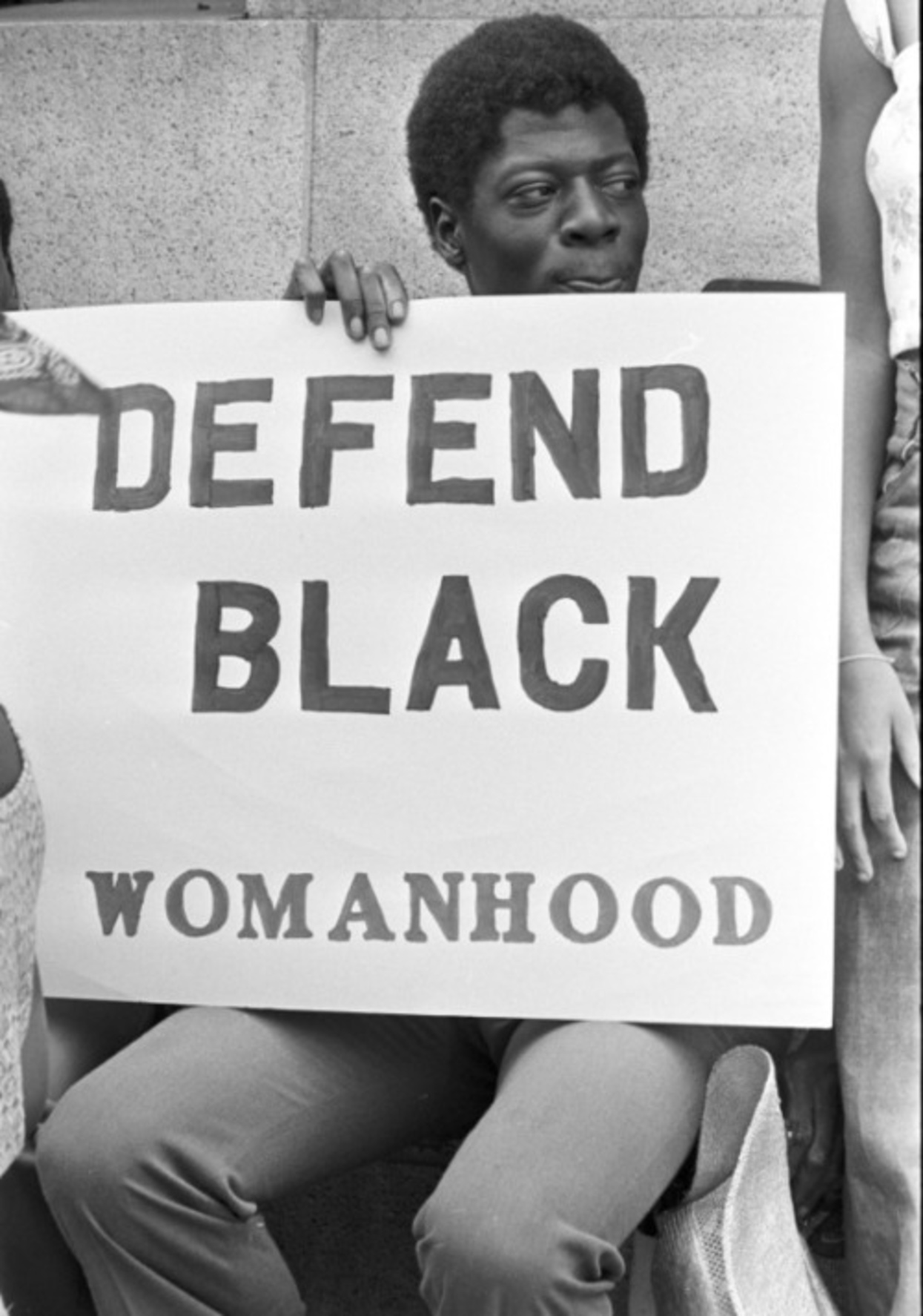Malika Imhotep at NWSA 2017

Malika Imhotep, a PhD scholar in African American and African Diasphora studies at the University of California, Berkeley, attended the 2017 National Women’s Studies Association (NWSA) Annual Conference: 40 YEARS AFTER COMBAHEE: Feminist Scholars and Activists Engage the Movement for Black Lives in Baltimore, Maryland. The conference took place from November 16-19, in which Imhotep was a presenter.
The Spring 2017 BCNM Conference Grant helped cover Daley's costs of attending a premiere conference in her field.
In her own words:
I began my presentation entitled #DefendBlackWomanhood by reading the following poem:
I AM SOMEBODY!
By Joann Little
I may be down today
But I am somebody!
I may be considered the lowest
on earth; but I am somebody!
I came up in low rent housing,
sometimes lived in the slums;
But I am still somebody!
I read an article where a black youth
was jailed, he stole some food, but got
15-20 years – he was somebody!
I killed a white in ‘self-defense’
but the jury doesn’t care – and when
he came for me to prepare trial –
he said she deserves the chair –
Every time
Every hurt and pain I feel inside,
Everytime I pick up the morning news
only to see my name on the front page –
I begin to wonder; they make me feel
less than somebody.
But in the end I will have freedom
and peace of mind. I will do anything
to help prove my innocence. Because
of one important fact above all…
‘I am somebody!’
Source: Save Joann Little (Women’s Press Collective, 1975)
Here, Joann Little articulates a keen awareness of self, a need to declare the self as worthy of body. The repeated articulation of somebodiness follows stanzas that relay a real time sense of her situation without flourish or fancy. She reflects on the self, her self, as seen through the eyes of the news, her self as seen in the criminalization of black youth, her selfhood as the fact above all. She owns a double consciousness that finds solace in peace of mind, an assertion of freedom. Here, innocence is not evoked to expunge the record of her reality but instead serves as an explicit rebuff of the carceral system that has rendered her vulnerable and punished her will to survive. I hear in I Am Somebody echoes of Sojourner Truth’s seminal declaration “Aint I or Arent I a Woman”
My presentation was a brief an anachronistic retelling of Black Women’s Right Activism (BWA) to illustrate the almost startling coherence of BWA consciousness raising initiatives. I began with Joann Little because the iconography surrounding her case inspired Black Feminist Futures #DefendBlackWomanhood Altar building initiative.
With an eye turned to new media, I set out to establish testimony, militant witnessing, and community mobilization as key strategies of black women’s rights activism throughout the 20th and 21st century. To do this I prioritize primary sources of self-articulation, archival kin to the ‘tweet’ and thinkpiece, from several black women’s rights organization: Black Feminist Futures (2015), The Combahee River Collective (1974-7) and The Sojourners for Justice and Truth (1951)
I closed with a mediation on the hashtag as a strategically employed tool that digitizes and renders spreadable practices of militant witnessing and testimony, contributing to an intergenerational and atemporal chorus of black feminist praxis.
(‘Spread’ here indexes Henry Jenkins move to incorporate the active participation of online users in contrast to the way viral trends connote an invasive ‘happening to’ users)
‘Context Collapse’ is a new media theory coined by Marwick & boyd that enables an engagement with the contemporary prominence of retro iconography, rhetoric and protest aesthetics that pull black feminist and proto-feminist organizations into a continued conversation. Rejecting a linear progress narrative, this black feminist context collapse instigated by the hashtags ‘defendblackwomanhood’ and ‘sayhername’ allows us to think about the radical potentiality of black ‘women’s time’ (Kristeva 1979).
Basically Context Collapse explicates the ways social media renders information, images, & memes accessible beyond the confines of their intended audiences. So in application to black feminist praxis I’m thinking about the way new media allows for a different kind of ‘staying power’ / serves as a new arena for political and cultural investment.
I concluded that the defense of black womanhood is a long standing preoccupation of black women’s political and cultural imaginations. The point being that: Whether the organizing strategies have been contingent on respectability, public safety, freedom, fugitivity or any other radical rebuttal to the imposition of white moral and judicial codes, black women’s rights activist, by any and every name, operate within an eternal tradition.
The hashtag allows black womens rights activist across generations to dwell alongside each other in a cyclical flow of evocation that mirrors ritual as articulated by the #DefendBlackWomen Altar Campaign by the organization Black Feminist Futures
